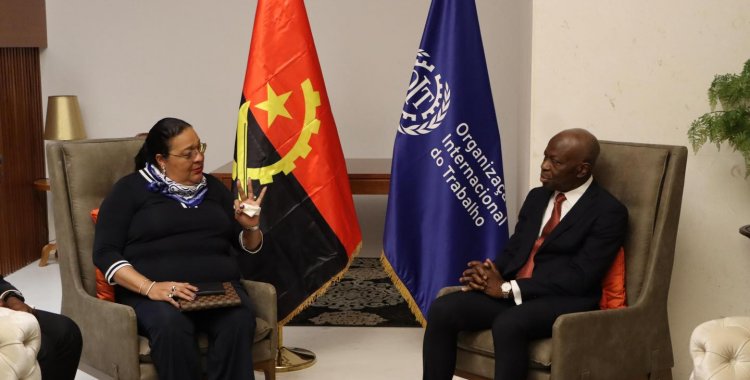Gilbert Houngbo was speaking to journalists at a press conference after the inauguration of the OIT office in Angola, which encompasses the entire community of Portuguese-speaking African Countries (PALOP), at a ceremony attended by the Minister of Public Administration, Labour and Social Security, Teresa Dias.
According to the OIT Director-General, the post-Covid-19 situation has created "a difficult period" in Angola, due to the imbalance between the cost of living and wages, a situation that has also been seen in other countries.
The official stressed that, from the OIT's perspective, "given this reality, the Government needs to adjust wages in line with the cost of living".
At the same time, he added, "it is also necessary to look at the fiscal and monetary situation".
According to Gilbert Houngbo, in the face of inflation and the instability of the exchange rate and the national currency, the Government "must seek to create a balance between this situation and the increase in the cost of living".
The Director-General of this United Nations agency also highlighted the challenge of the informal economy, a problem that affects most African countries, to the tune of 70 percent, and highlighted that, as in the entire continent, Angola's population is mostly made up of young people.
"It is a potential asset for the continent, but at the same time we cannot ignore the population growth rate with the employment growth rate. This is very important, especially because, in Africa, every year we have an average of 12 million young people entering the job market", he stressed.
Regarding social protection and security, Gilbert Houngbo said that Angola has made progress in this regard, stressing that he has been working with the Government on this issue for several years.
Regarding child labour, the official said that this issue was discussed last year with Minister Teresa Dias, when she travelled to Geneva, Switzerland, and the matter was also discussed on Thursday with the Minister, when she arrived in Luanda.
"We know that the issue of child labour has worsened considerably since Covid-19 in general, but we continue to work and seek strategies with the ministry to mitigate this situation, especially in rural areas, in the agricultural and mining sectors", she said.
In turn, the Minister of Public Administration, Labour and Social Security said that with the presence of the OIT in Angola, the conditions have been created for the office to begin its work.
Teresa Dias said that Angola has been a member state of the OIT for many years and is up to date with its quotas, and it has been concluded that the country can benefit much more from its integration into the organization, which is not the case due to language barriers.
The minister said that Angola's integration into the regional office in Kinshasa, whose predominant language is French, prevents it from taking full advantage of some packages reserved for key issues such as, for example, the fight against child labour and social protection, among others.
Teresa Dias said that the country also benefits from cost reduction, particularly with translations, and that it is also a way for Angola to launch its staff into the international arena.







